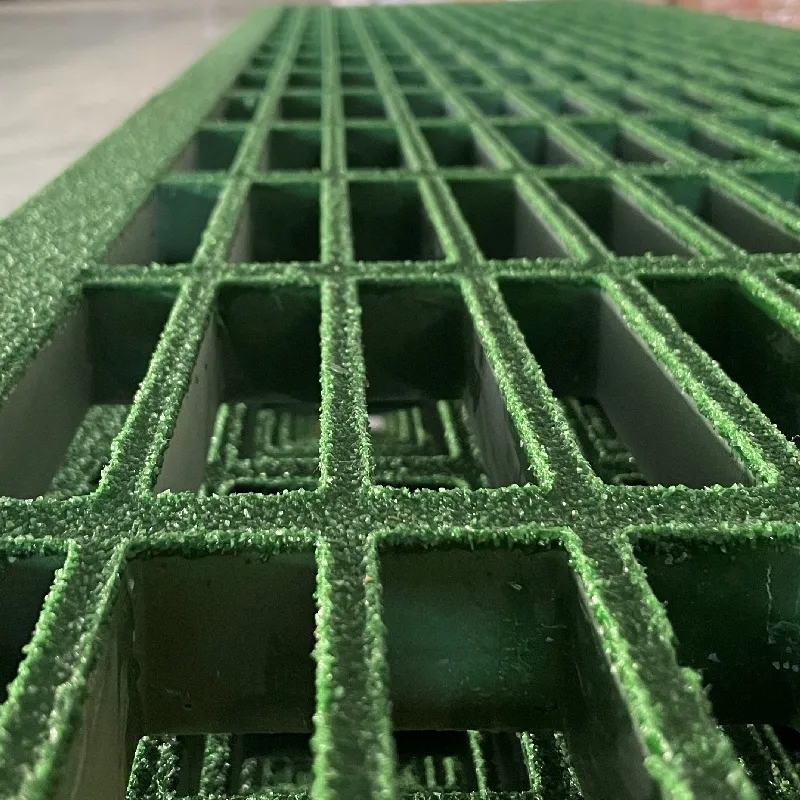loading...
- No. 9, Xingyuan South Street, Dongwaihuan Road, Zaoqiang County, Hengshui, Hebei, China
- admin@zjcomposites.com
- +86 15097380338
- Welcome to visit our website!
frp filter tank
Understanding the FRP Filter Tank A Comprehensive Overview
FRP (Fiberglass Reinforced Plastic) filter tanks are increasingly becoming essential components in various water treatment applications, including residential, commercial, and industrial settings. These tanks are renowned for their durability, lightweight nature, and resistance to corrosion, making them an ideal choice for applications that require reliable filtration systems.
The Composition of FRP Filter Tanks
The primary material used in creating FRP filter tanks is fiberglass, which is a composite material consisting of glass fibers and resin. This combination results in a strong yet lightweight structure that can withstand high pressures and harsh chemical environments. The resin used in these tanks is often specially formulated to resist UV radiation and extreme temperatures, further enhancing the longevity and performance of the tank.
Advantages of FRP Filter Tanks
One of the most significant advantages of FRP filter tanks is their corrosion resistance. Unlike traditional steel or metal tanks, FRP tanks do not corrode when exposed to water or harsh chemicals, thus reducing maintenance costs and extending the lifespan of the equipment. Additionally, the lightweight nature of FRP makes transportation and installation easier compared to heavier alternatives.
Another notable feature of FRP tanks is their adaptability. They can be manufactured in various shapes and sizes to meet specific filtration needs. This flexibility makes it easy to integrate FRP filter tanks into existing systems or design new filtration solutions tailored to specific requirements.
frp filter tank

Applications of FRP Filter Tanks
FRP filter tanks are widely used in various fields, including
1. Water Treatment These tanks are commonly used in municipal and industrial water treatment plants for removing contaminants from water and ensuring compliance with quality standards. 2. Aquaculture In aquaculture settings, FRP filter tanks help maintain optimal water quality by filtering out waste products and providing a clean environment for fish and other aquatic organisms.
3. Food and Beverage Industry The food and beverage sector relies on FRP tanks for hygiene and safety, as these tanks prevent contamination and are easy to clean.
4. Chemical Processing The chemical industry benefits from FRP filter tanks due to their resistance to corrosive substances, making them suitable for filtering a wide range of chemicals.
Conclusion
In conclusion, FRP filter tanks play a crucial role in efficiently filtering water and various liquids in multiple industries. Their superior resistance to corrosion, lightweight nature, and adaptability make them an indispensable choice for anyone looking to invest in a reliable filtration system. As demand for clean water and effective filtration continues to rise, the importance of FRP filter tanks will only grow, paving the way for innovative solutions in water treatment and beyond. By selecting FRP tanks, users can ensure they are employing durable, efficient, and cost-effective filtration solutions that meet present and future demands.
-
The Rise of FRP Profiles: Strong, Lightweight, and Built to LastNewsJul.14,2025
-
SMC Panel Tanks: A Modern Water Storage Solution for All EnvironmentsNewsJul.14,2025
-
GRP Grating: A Modern Solution for Safe and Durable Access SystemsNewsJul.14,2025
-
Galvanized Steel Water Tanks: Durable, Reliable, and Ready for UseNewsJul.14,2025
-
FRP Mini Mesh Grating: The Safer, Smarter Flooring SolutionNewsJul.14,2025
-
Exploring FRP Vessels: Durable Solutions for Modern Fluid HandlingNewsJul.14,2025
-
GRP Structures: The Future of Lightweight, High-Performance EngineeringNewsJun.20,2025
